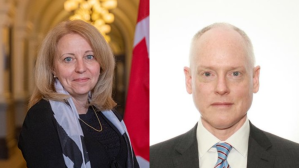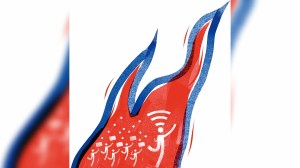A whodunnit from Jhajjar
Ratan Singh, 58, father of two of the five Dalits massacred in Jhajjar on Dussehra night had, on March 6, visited the Adarsh Goshalaya in Ti...

Ratan Singh, 58, father of two of the five Dalits massacred in Jhajjar on Dussehra night had, on March 6, visited the Adarsh Goshalaya in Tikli village, Gurgaon. A goshalaya is a cattle yard where ailing or old cattle are kept under the benign care of cattle lovers.
Ratan Singh paid Rs 10,000 to the cattle shelter for which he was given a receipt. The Rs 10,000 paid to the goshalaya entitled him to the bodies of dead animals which his sons then skinned — one of the million such operations for the nation’s tanneries. On April 2, Ratan Singh also paid Rs 35,000 to the Sohna Panchayat Samiti. For this sum he obtained a licence which entitled him to skin dead cattle and sell their hides and bones.
To the extent that Ratan Singh and family functioned as scavengers for the community, coping with their responsibilities as Chamars, low down the caste order, they hurt nobody except perhaps the younger members of the family who wished to break out of the caste straitjacket. But today Ratan Singh can pay Rs 45,000 annually above the counter to obtain a legitimate right to skin dead cattle. Heaven knows how much he must pay below the counter to carry on the business because anyone in the hierarchy — from village to state level — can stop his truck for a check. The system has to be greased.
There is an irony loaded in his favour. Recent droughts have ruined the farmers, generally from the upper castes. But a high mortality rate among cattle means brisk business for a caste looked down upon as scavengers. The economic upward mobility of the low castes must create some jealousies. The caste affiliations of the upper castes with the administration, particularly the police, must be a factor in the given social balance.
A curious factor in the Jhajjar massacre is that in the earlier stages the local VHP was alleged to have taken up cudgels because of the rumour that a cow had been killed on Dussehra. The VHP would have a huge interest in the matter if the cow killers were Muslims.
The police version is that it was an agitated mob, returning from Dussehra festivities, which had lynched the five. Does this mean that the mob, which was shouting,‘Gau mata ki jai’, fell upon the five imagining them to be Muslims? But there are no Muslims in the area for this kind of mischief to yield any political mileage.
Obviously the VHP had misunderstood the situation at the outset and that misunderstanding was encouraged by someone. Who? Someone desperately keen to mobilise a mob to cover up for the gruesome murder of the five at the Dulena police chowki.
A quick look at the sequence of events to unravel this whodunnit: a Tata mini truck is loaded with skins at Farraknagar by Ratan Singh’s two sons from Badshapur, a cousin from Aklimpur, the truck driver from Tikli in Gurgaon.
The skins are for Kailash, a trader from Karnal who is also on the truck. The road to Karnal from Farraknagar passes through Jhajjar, but 10 km short of Jhajjar, is a red, square building. This is the Dulena chowki where doing duty on the evening of Dussehra — October 15 — were ASI Dharamvir and three jawans. The truck is stopped for routine checking. It is still not dark.
From here, the narratives diverge — the police version and the village version. Hoshiar Singh, constable at Dulena, insists a cow was killed by the Dalits quite near the chowki.
Tripurari Rai, assistant director of the SC-ST Commission, is questioning Narender Singh, DSP Jhajjar and City Magistrate Raj Pal: ‘Can you believe that anyone would kill or even skin a cow by the side of a busy highway?’ he asks. The police version makes no sense. Also, there is no sign of mob fury around the police chowki. Marigold plants in bloom around the building have not been trampled on. How then were the five stoned, beaten with rods in one of the rooms of the chowki where the walls have traces of blood. ‘The mob broke the lock,’ Hoshiar Singh insists.
In Badshapur the conventional wisdom is that the police demand for a bribe led to an altercation. The situation got out of control leading to the brutal murders. Ratan Singh sits on a duree outside his ample house visited by numerous people including politicians.
Haryana chief minister, Om Prakash Chautala, sent Deputy Speaker Gopichand Gehlot with a cheque of one lakh. ‘We don’t want money; we want the police to be punished,’ Ratan Singh says. Later, Sonia Gandhi came with a gift of one lakh in cash in crisp 500-rupee denominations. ‘‘I accepted it because she came with sympathy.’’ That is the beginning of the political dimension.
Write to saeednaqvi@expressindia.com
Photos





- 01
- 02
- 03
- 04
- 05


























